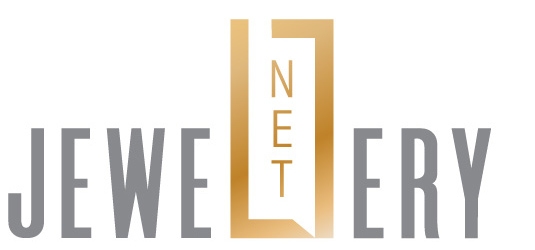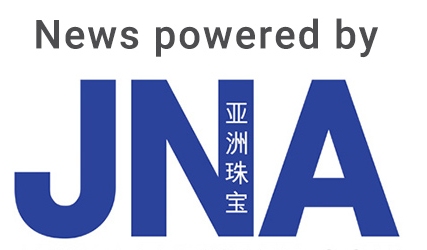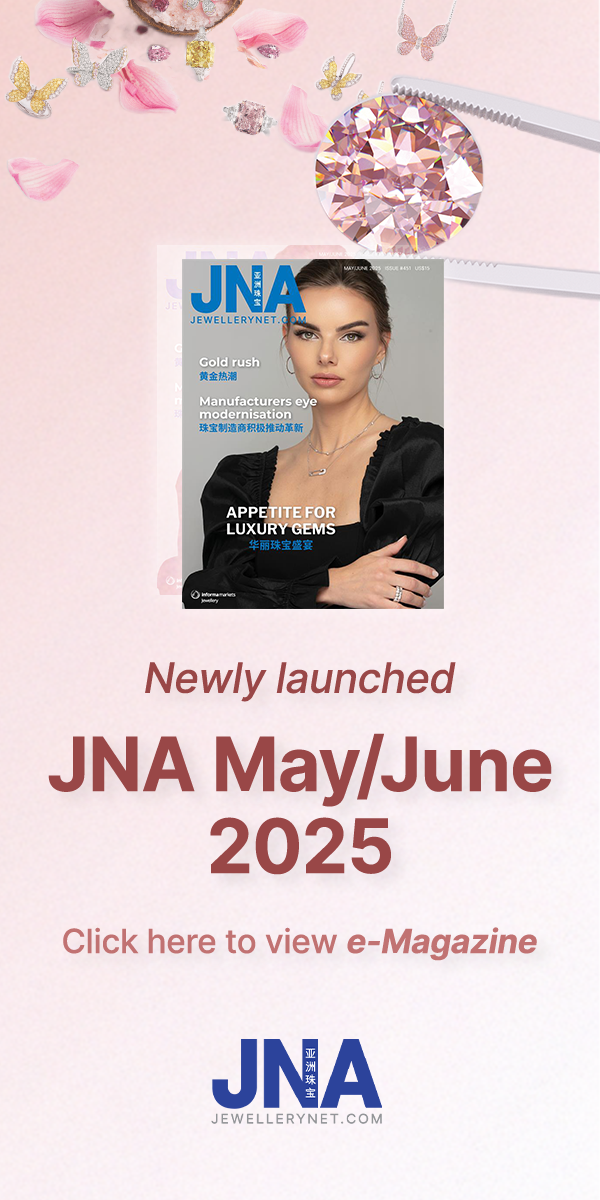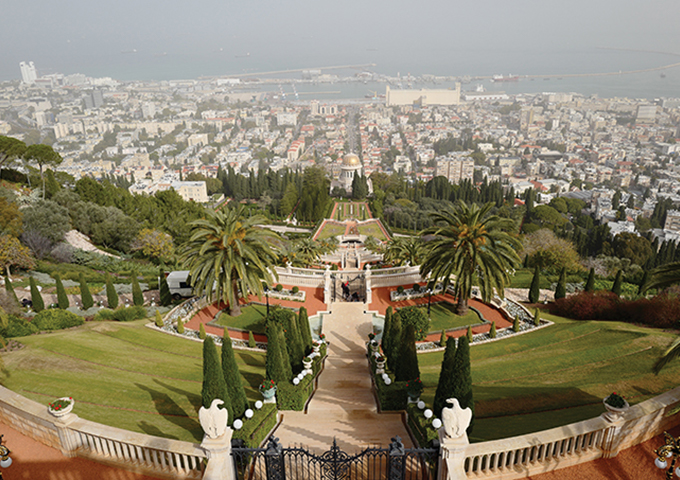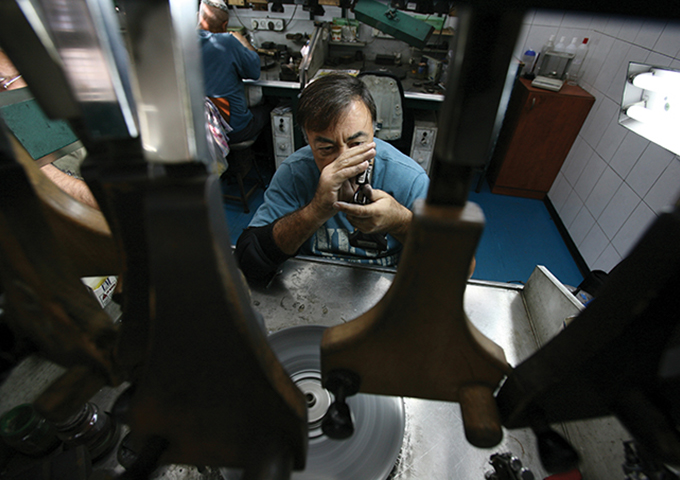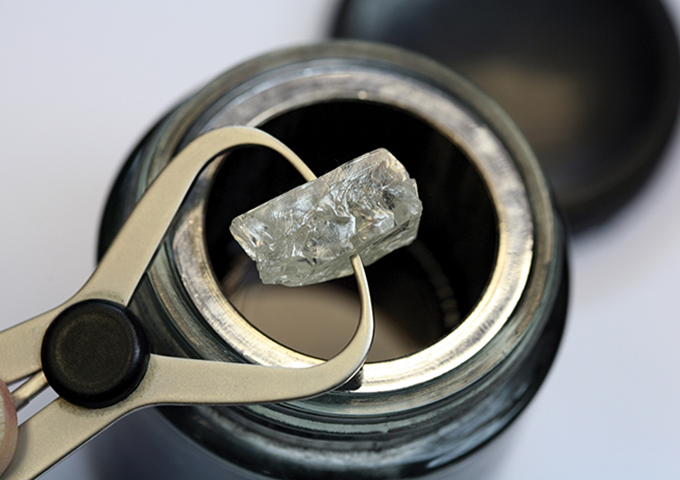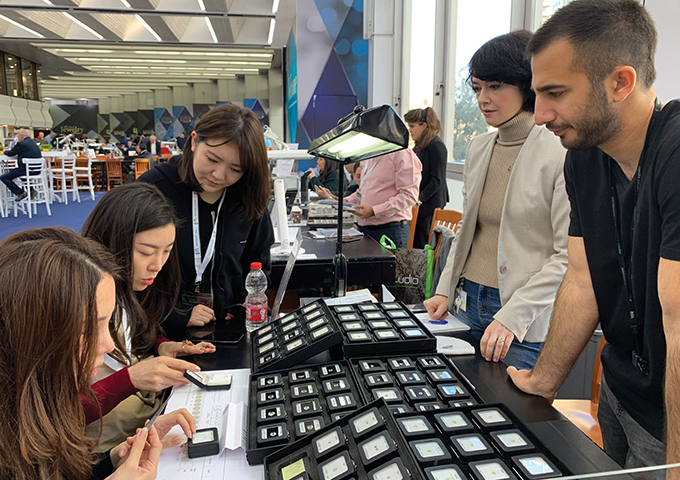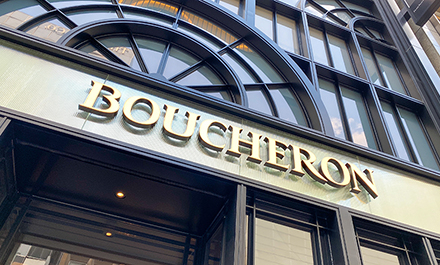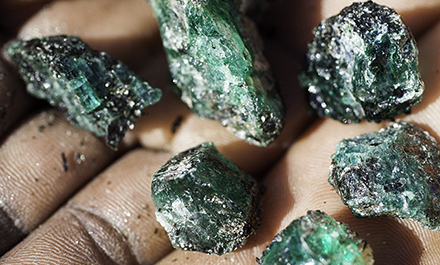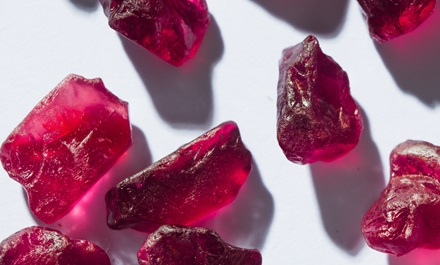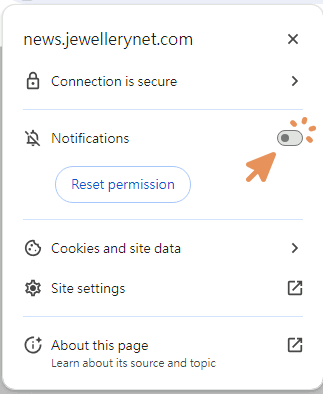Diamond deals all over the world conclude with a handshake and the Hebrew words, "mazal u’bracha," which roughly translates to "good fortune and a blessing." This universal code is an ode to Israel’s enduring legacy. Faced with opportunities and challenges, the country relies on tradition and innovation to sustain growth in the diamond trade.
A key industry in Israel, diamond exports account for about 17 percent of the country’s total trade. The Israeli diamond industry generates US$7 billion annually from the export of rough and polished diamonds, with a total annual export and import turnover of US$12.4 billion. The banking sector provides US$1.5 billion in credit to the diamond sector. The industry also employs 20,000 people domestically and 55,000 worldwide. Exports to the US, the Far East and Europe remain strong. Israel was likewise responsible for introducing technological advances to the industry.
Cautious optimism
Israel’s polished diamond exports amounted to US$4.48 billion in 2018, according to figures published by the Diamond, Gemstones and Jewellery Administration of the Israeli Ministry of the Economy. Polished diamond imports reached US$3.04 billion while rough diamond exports and imports stood at US$2.25 billion and US$2.66 billion, respectively.
Israeli diamond trade stabilised for the first time in 2018 since 2011. While polished exports fell 2.5 percent, imports of polished diamonds rose 4.1 percent while rough exports gained 1.1 percent. According to Israel Diamond Exchange (IDE) President Yoram Dvash, diamond exports in 2018 actually slightly increased but this was not reflected in the data due to changes in the method of measurement.
Dvash said, "After several very challenging years we have begun to see early signs of recovery and we are cautiously optimistic about the future. I’m very glad that the decrease in polished exports has been stopped, and indications are that our industry is headed for a better year in 2019."
The US is still the primary market for polished exports, accounting for 48 percent of the market, followed by Hong Kong (28 percent), Switzerland (8 percent), Belgium (7 percent), the UK (3 percent) and other countries (6 percent).
Challenges
According to Sharon Gefen, public relations director of the Israel Diamond Institute (IDI), the global diamond industry, Israel in particular, faces several issues. These include a shortage of credit as financial institutions around the world cut back on providing financial aid to the industry. In Israel, credit provided to the industry has decreased by almost half over the past decade. IDE is now working to remedy the situation by increasing transparency and cooperating closely with the Israeli government to find a solution.
The lack of rough diamonds in manufacturing centres is also a major issue. "We have established the International Tender Center to attract leading miners and rough traders to hold their tenders here. This in turn would bring a greater amount of rough diamonds in our system. We have also put up the Diamond Auction Center, which will hold live rough diamond auctions," said Gefen.
Technology
A number of technological advancements used today in the global diamond industry were invented and developed in Israel. The country also pioneered the use of lasers in cutting rough diamonds.
New technologies are continuously being developed through the Diamond Tech Innovation Center, a technological incubator located in the IDE complex and supported by both IDE and IDI.
Known as the "start-up nation," Israel continues to harness innovation and creativity through the Diamond Tech Innovation Center. The idea is to encourage technology entrepreneurs to provide innovative solutions for the diamond industry, which will increase its efficiency and profitability.
With the growth of online diamond trading platforms, the industry established Get-Diamonds, a free and advanced B2B trading platform representing Israeli companies.
Those that list their products on Get-Diamonds.com are certified IDE members. With the diamonds traded in one place, the portal provides worldwide users access to Israeli diamonds anytime and anywhere in the world.
International Diamond Week in Israel
The IDE wrapped up the three-day International Diamond Week in Israel (IDWI) on January 31. IDWI 2019 attracted over 350 foreign buyers from more than 30 countries, a third of which were new visitors to IDE, including a delegation from China and Thailand of around 20 buyers. Over 150 Israeli companies exhibited polished diamonds and high-end diamond jewellery on IDE’s trading floor.
IDWI Chairman Ezra Boaron highlighted the importance of Asian buyers’ presence in the event. “We hope to see more of these visits since these are important export markets for us. Our member companies were pleased to entertain them.”
Chinese and Thai delegates, for their part, expressed interest in coming back next year, noting Israel’s most sought-after products were 2-carat stones and up, as well as fancy cut and fancy colour diamonds.
China
Asia, China in particular, remains significant to the Israeli diamond industry. IDE has partnered with trading giant Alibaba and more than 100 Israeli diamond companies have since set up stores on the Alibaba B2B platform. The B2C-centric Ali Auction meanwhile holds monthly IDE auctions of loose diamonds.
The first China-Israel Diamond Week, scheduled for September this year in Shenzhen, will be jointly organised by IDE, the Shanghai Diamond Exchange (SDE) and Guangdong Land Holdings Ltd. The three-day event will include a day-long seminar, a China-Israel Diamond Forum, a memorandum of cooperation signing, and a China-Israel Diamond Sales Meet, where Israeli exhibitors will present their goods to Chinese buyers.
IDE’s Dvash commented, “The China-Israel Diamond Week brings the close relationship between IDE and SDE to an even higher level. This is the IDE’s first solo exhibition in China. It is an excellent opportunity to gain exposure in this most important market and we are very excited.”
